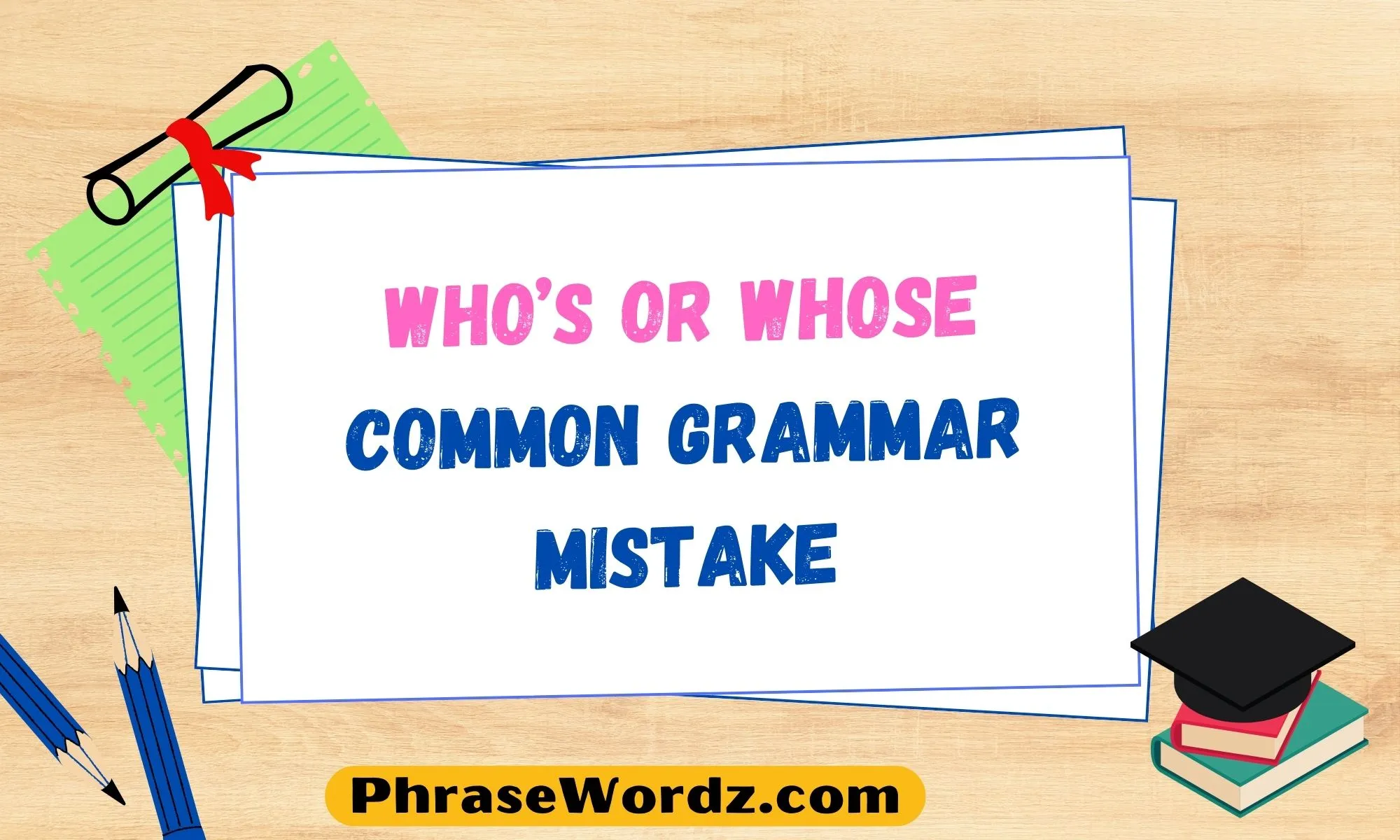The English language, while beautiful and expressive, can often be perplexing, especially when it comes to homophones like “who’s” and “whose.” Many learners—and even native speakers—confuse these two words because they sound identical but have entirely different meanings and functions.
Confused about Who’s or Whose? Discover the key differences, clear explanations, and practical examples to master these commonly misused words. Learn when to use each correctly and elevate your English grammar skills!
In this article, we’ll delve into the distinction between “who’s” and “whose,” analyze their proper usage, and provide real-life examples, including scenarios and emails, to help you grasp the concept fully.
Let’s ensure this common grammar mistake becomes a thing of the past.
Understanding Who’s
The word “who’s” is a contraction, which means it combines two words into one. Specifically, it stands for either:
- Who is
- Who has (in some contexts)
Key Notes:
- Always involves a verb.
- Can be expanded to check its meaning in a sentence.
Examples:
- Who’s coming to the meeting tomorrow?
(Who is coming to the meeting tomorrow?) - Who’s already finished their assignments?
(Who has already finished their assignments?)
Understanding Whose
On the other hand, “whose” is a possessive pronoun. It is used to ask or indicate ownership or association.
Key Notes:
- Never a contraction.
- Refers to possession or belonging.
Examples:
- Whose book is this on the desk?
(Asks about the owner of the book.) - The student whose presentation was excellent received applause.
(Refers to the student who owned or was associated with the presentation.)
Common Mistakes and How to Avoid Them
Mixing up “who’s” and “whose” often results from not understanding their grammatical roles. Here’s how you can avoid such errors:
- Expand Contractions: Always replace “who’s” with “who is” or “who has” to see if the sentence makes sense.
- Test Possession: For “whose,” see if it makes sense to insert ownership (e.g., replace with “belonging to whom”).
Real-Life Scenarios
Scenario 1: Casual Email
Subject: Whose Idea Was It?
Hi Darcy,
I hope this email finds you well. I wanted to check something with you. Whose idea was it to implement the new team-building activity? It was a brilliant suggestion, and I’d like to acknowledge the contributor during tomorrow’s meeting.
On a related note, who’s going to handle the logistics for the event? Please let me know if I can assist in any way.
Best regards,
Elizabeth
Scenario 2: Workplace Chat
John: Hey team, who’s leading the client presentation tomorrow?
Emily: That’s Mark. Also, do you know whose laptop was left in the conference room?
John: Oh, I think it’s Anna’s. I’ll let her know.
Scenario 3: Academic Context
Teacher: Whose project is still pending?
Student: Mine, sir. I’m almost done.
Teacher: Alright, and who’s helping you with the research?
Student: Jenny is assisting me.
Tips to Master Who’s and Whose
1. Practice with Examples
Write sentences using both words to see the difference in context. For instance:
- Incorrect: Whose coming to the party?
Correct: Who’s coming to the party?
2. Focus on the Verb
If the word involves a verb (is or has), it’s likely “who’s.”
3. Look for Possession
If ownership or association is implied, it’s “whose.”
Describe the Difference Between Who’s and Whose
| Aspect | Who’s | Whose |
|---|---|---|
| Definition | Contraction of “who is” or “who has” | Possessive pronoun |
| Function | Refers to an action or state | Indicates possession or ownership |
| Examples | – Who’s coming to dinner? | – Whose coat is this? |
| Test | Replace with “who is” or “who has” | Replace with “belonging to whom” |
| Common Error | Using “who’s” for possession | Using “whose” as a contraction |
Conclusion
The distinction between “who’s” and “whose” lies in their grammatical roles—one is a contraction while the other signifies possession. By practicing real-life examples and using tools like contraction expansion and ownership tests, mastering this difference becomes much easier.
With time and consistent practice, you’ll confidently use these words without hesitation.











